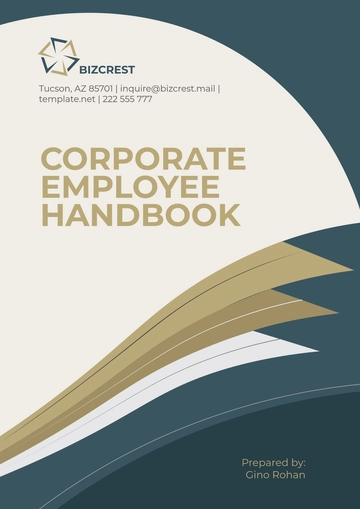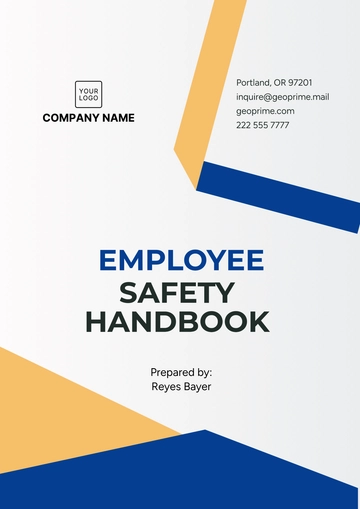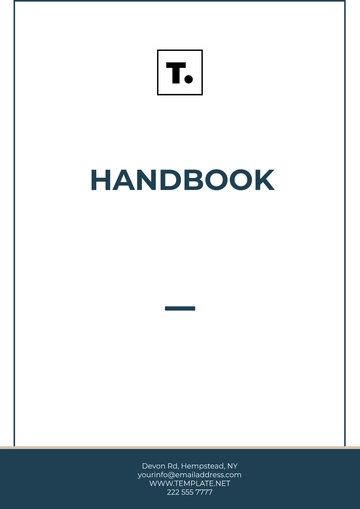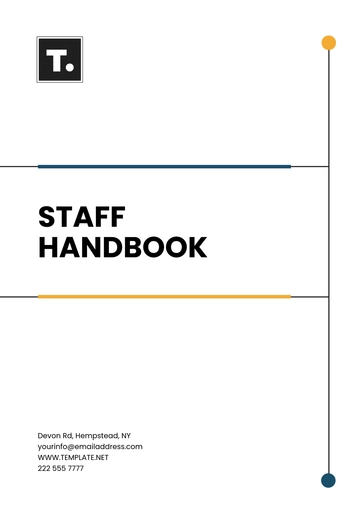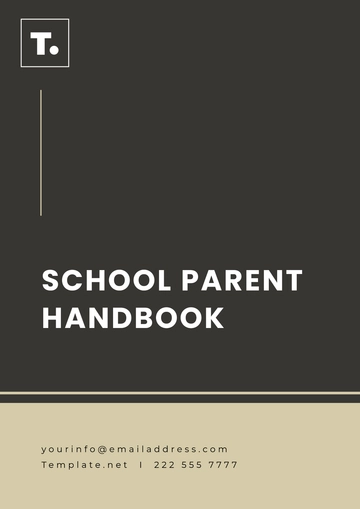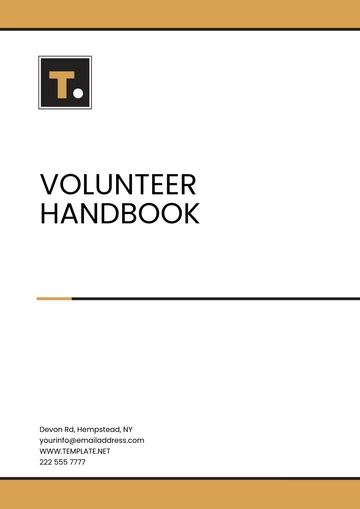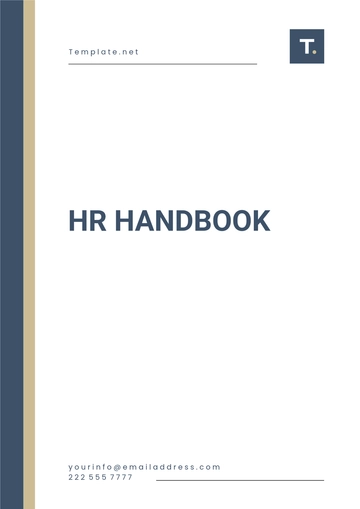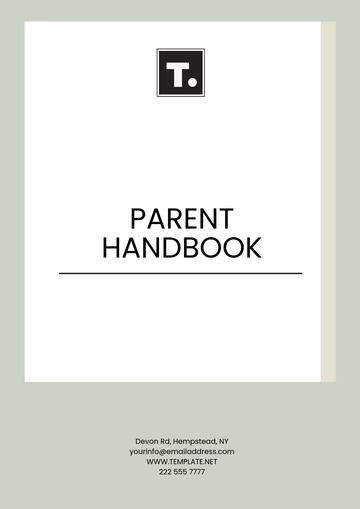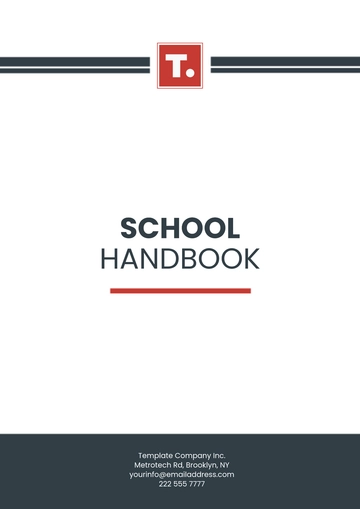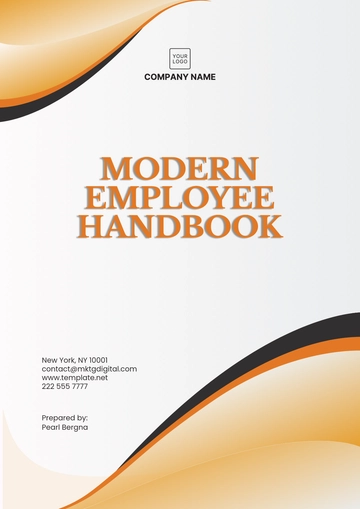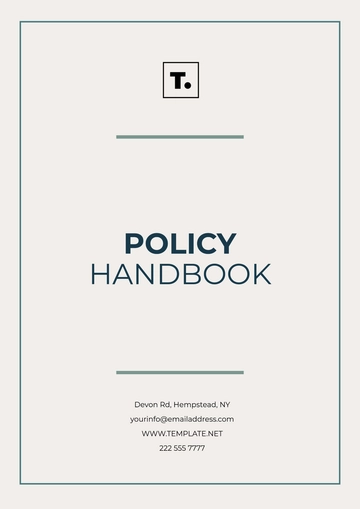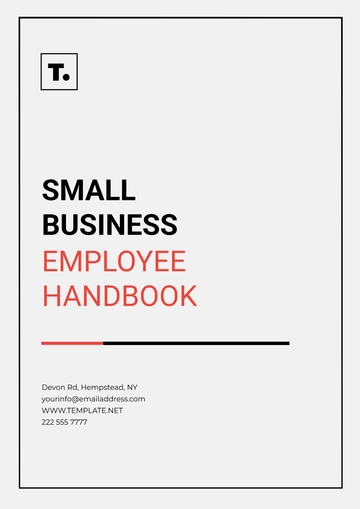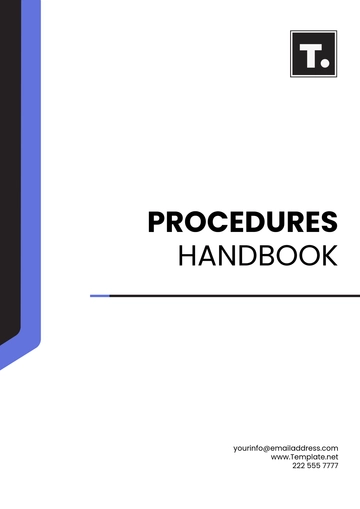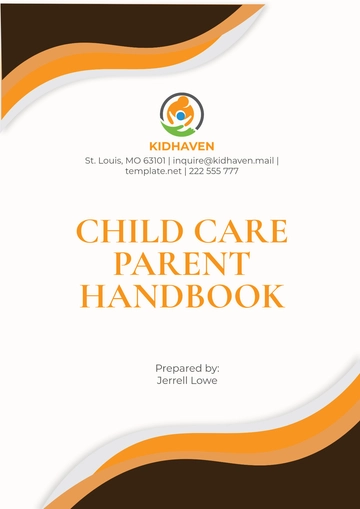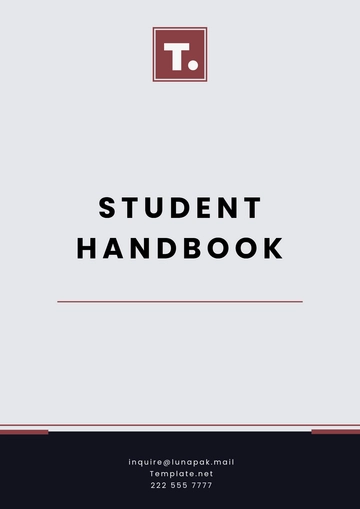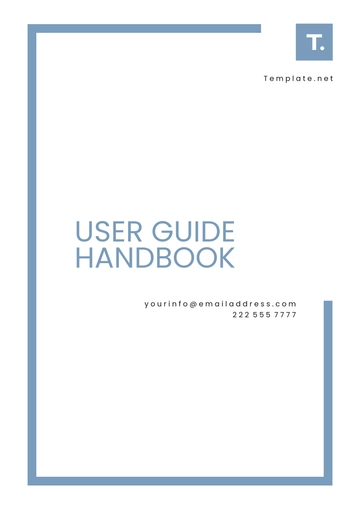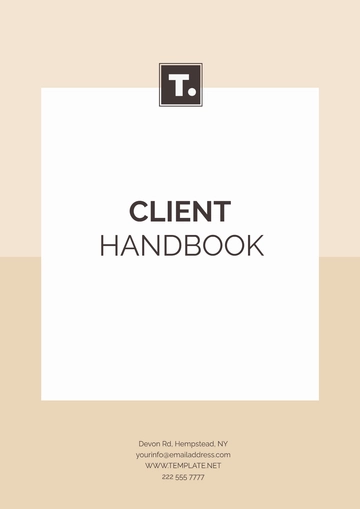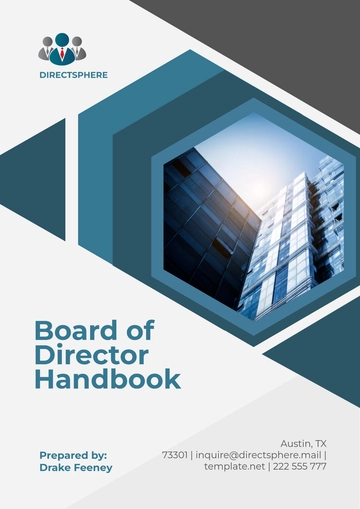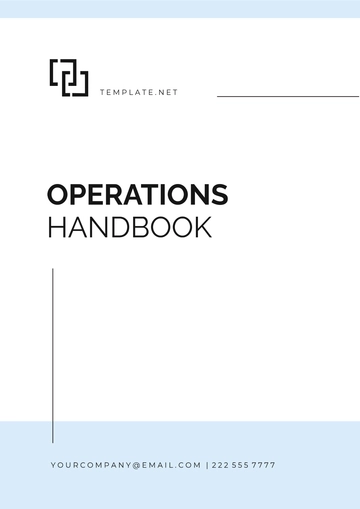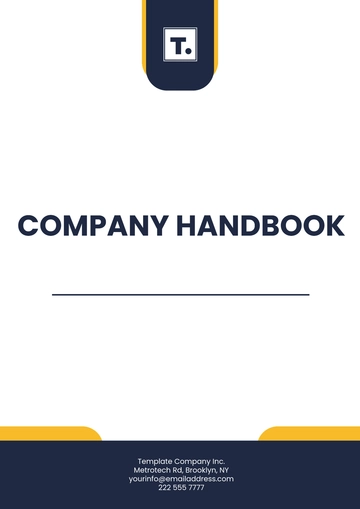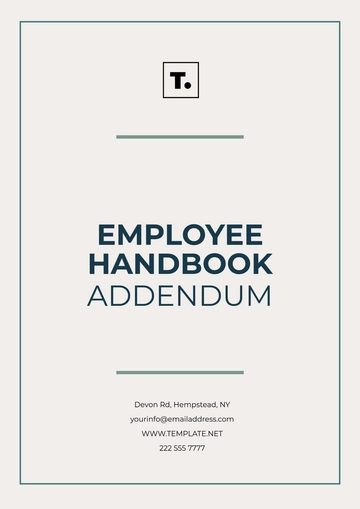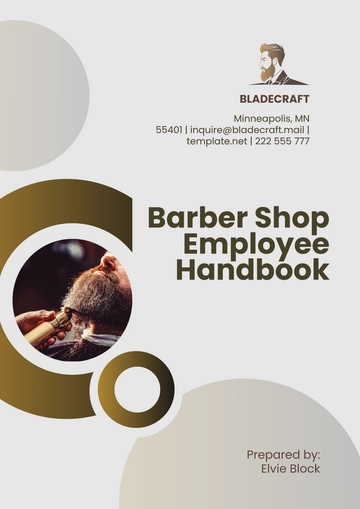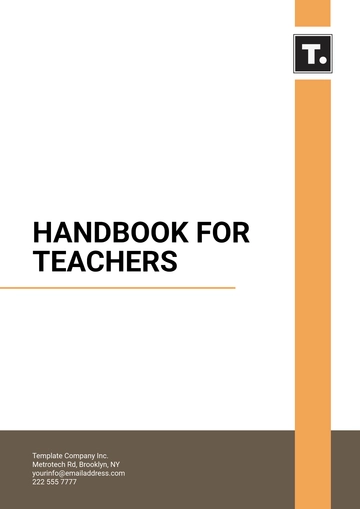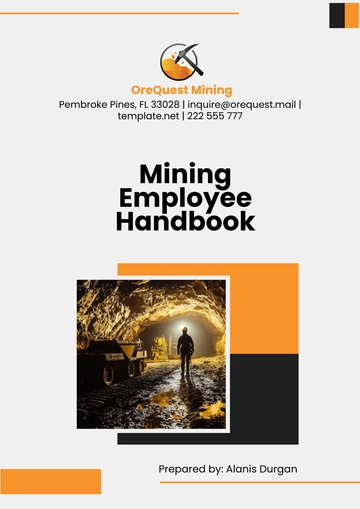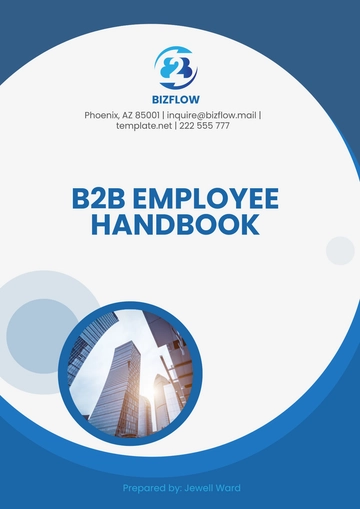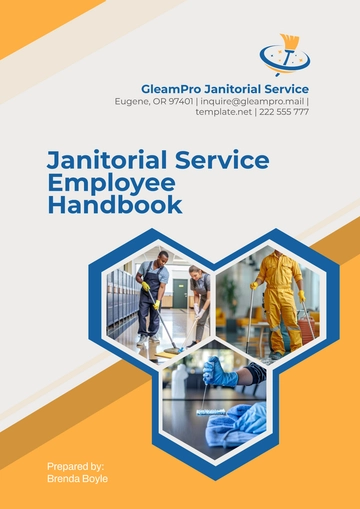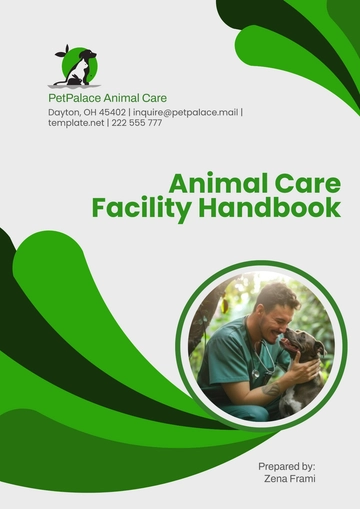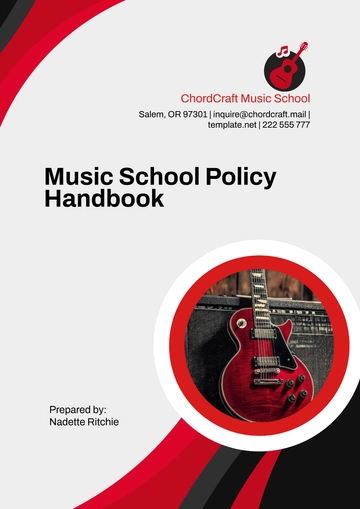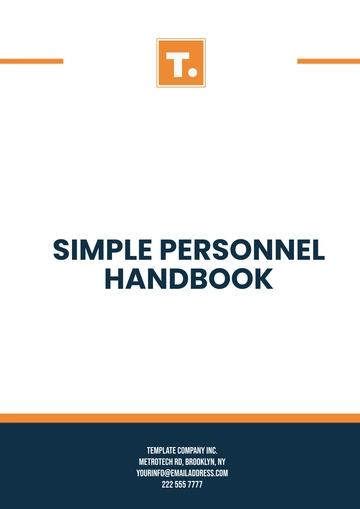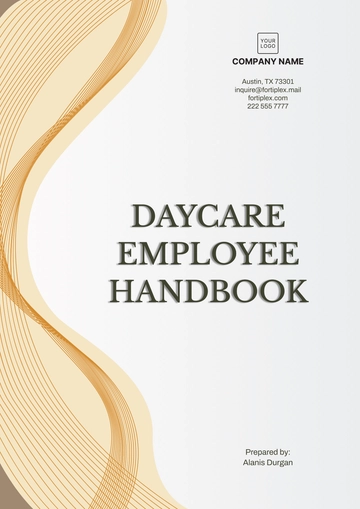Free Travel Agency Management Handbook
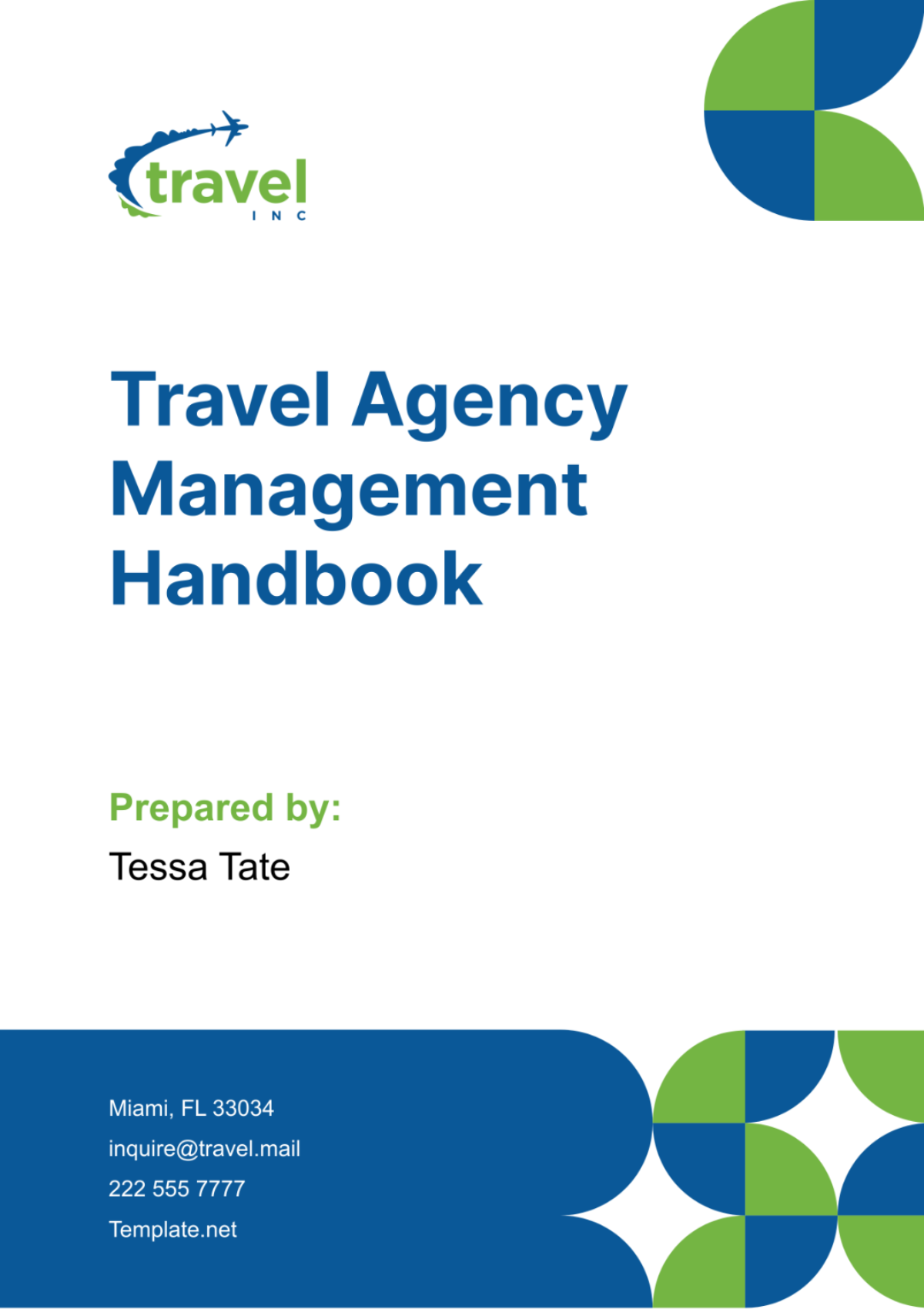
I. Introduction
Welcome to the Travel Agency Management Handbook of [Your Company Name]. As a crucial component in guiding management practices, this document is meticulously designed to frame the operational landscape within which our agency functions. Here, we delineate the overarching goals of our agency, emphasizing the imperative of stellar customer service and operational excellence. Managers will gain insights into the role this handbook plays in fostering a structured and efficient environment for both staff and clients.
In this introductory section, we establish the structure and intent of the handbook, which serves as a vital resource for navigating the complexities of travel agency management. It outlines strategic objectives and provides a clear roadmap for achieving them. This guide is an essential tool for all managers, ensuring that each member of our team is equipped with the knowledge to uphold and enhance the reputation of [Your Company Name] through exceptional service delivery.
As you proceed, this handbook will present a series of detailed, actionable strategies aimed at refining service quality, enhancing operational efficiency, and driving business growth. Managers are encouraged to integrate these guidelines into daily operations, adapting them as necessary to meet the evolving needs of our clients and the dynamics of the travel industry. This section sets the stage for a deeper understanding of our agency’s operational mechanics and strategic directives.
II. Administrative Procedures
This section of the Travel Agency Management Handbook outlines the essential administrative procedures vital for the smooth operation of [Your Company Name]. It covers detailed workflows, documentation practices, and compliance with legal standards, ensuring that our operations are efficient and legally sound. Here, we provide structured guidelines for managing travel bookings, responding to customer inquiries, and maintaining high operational standards.
Procedure | Description | Responsibility | Frequency |
|---|---|---|---|
Booking Management | Details the step-by-step process for handling travel reservations, including ticketing and itinerary adjustments. | Travel Agents | Daily |
Customer Inquiries | Outlines protocols for responding to customer queries promptly and effectively, ensuring customer satisfaction. | Customer Service Team | As Needed |
Compliance Checks | Describes the routine checks required to ensure operations align with travel industry regulations. | Compliance Officer | Monthly |
Documentation Standards | Specifies the format and standards for all official documentation to maintain consistency and clarity. | Administrative Staff | Ongoing |
Financial Transactions | Procedures for managing financial transactions, including invoicing, billing, and payment processing. | Finance Department | Daily |
Staff Training | Guidelines for the ongoing training of staff to ensure they are updated on the latest travel policies and technologies. | HR Department | Quarterly |
This table is instrumental in guiding managers and staff through the critical administrative tasks that support our core business activities. By adhering to these structured procedures, [Your Company Name] maintains operational excellence and ensures a high standard of service delivery.
III. Staff Management
This segment of the Travel Agency Management Handbook focuses on effective strategies for managing and empowering our workforce at [Your Company Name]. It encompasses recruitment, training, and performance evaluation techniques designed to develop a skilled and motivated team. Managers are equipped to enhance staff capabilities, ensuring they meet the evolving demands of the travel industry and deliver superior client service.
Aspect | Description | Responsibility | Frequency |
|---|---|---|---|
Recruitment Process | Guidelines for attracting and selecting candidates who fit the agency’s culture and client service standards. | HR Department | As needed |
Training Programs | Outlines the training methodologies to keep staff updated on travel trends and technologies. | Training Coordinator | Bi-annually |
Performance Evaluations | Procedures for assessing staff performance systematically to ensure alignment with agency goals. | Department Managers | Annually |
Employee Development | Strategies for continuous development opportunities, including workshops and seminars. | HR Department | Quarterly |
Conflict Resolution | Methods for handling conflicts effectively, maintaining a positive work environment. | HR Department | As needed |
Recognition Programs | Criteria and processes for recognizing and rewarding outstanding employee contributions. | HR Department | Annually |
This comprehensive framework ensures that managers at [Your Company Name] not only manage their teams effectively but also foster an environment of growth and excellence. By implementing these practices, we can maintain a highly competent and motivated workforce capable of meeting the needs of our clients and adapting to the dynamic travel industry.
IV. Client Service Excellence
This pivotal section of the Travel Agency Management Handbook is dedicated to elevating client service at [Your Company Name]. It lays out strategic approaches for enhancing customer engagement and satisfaction, ensuring our managers are not only equipped to meet but exceed client expectations. Through detailed service protocols and effective feedback management, we aim to foster loyalty and sustain long-term relationships.
Aspect | Description | Responsibility | Frequency |
|---|---|---|---|
Service Protocols | Detailed guidelines for delivering high-quality, consistent customer service across all client interactions. | Customer Service Team | Ongoing |
Feedback Management | Systems for collecting, analyzing, and responding to client feedback to continuously improve service quality. | Feedback Manager | Continuous |
Customer Engagement | Techniques to actively engage clients through personalized communications and targeted offerings. | Marketing Team | Ongoing |
Complaint Resolution | Step-by-step process for efficiently handling complaints to ensure client satisfaction and retention. | Service Managers | As Needed |
Loyalty Programs | Strategies for developing and managing loyalty programs that incentivize repeat business and referrals. | Loyalty Program Coordinator | Annually |
Client Experience Enhancement | Initiatives aimed at enhancing the overall customer journey, from initial contact to post-trip follow-up. | Client Experience Team | Ongoing |
This framework ensures that all levels of management at [Your Company Name] are fully prepared to deliver exceptional service. By following these protocols and continuously refining our practices, we strengthen our reputation as a leader in the travel industry, ensuring clients receive unparalleled service and support.
V. Financial Management
This essential section of the Travel Agency Management Handbook focuses on the financial stewardship of [Your Company Name]. It provides managers with comprehensive insights into budgeting, accounting, cash flow management, and profitability enhancement. Armed with practical advice on financial reporting and risk management, this chapter is pivotal in upholding the financial health and sustainability of our agency.
Aspect | Description | Responsibility | Frequency |
|---|---|---|---|
Budgeting | Guidelines for planning and allocating financial resources effectively to meet organizational goals. | Financial Officer | Annually |
Accounting Procedures | Standard accounting practices for accurate financial recording and reporting. | Accounting Department | Ongoing |
Cash Flow Management | Strategies for monitoring and managing the inflow and outflow of cash to ensure operational liquidity. | Cash Manager | Monthly |
Profitability Analysis | Techniques for assessing various aspects of the business to ensure profitability and identify improvement areas. | Financial Analyst | Quarterly |
Financial Reporting | Regular preparation and review of financial reports to provide transparency and inform strategic decision-making. | Reporting Officer | Quarterly |
Risk Management | Identification and mitigation of financial risks that could impact the agency’s sustainability. | Risk Manager | Ongoing |
By adhering to these financial management practices, managers at [Your Company Name] can ensure that the agency not only survives but thrives in the competitive travel industry. This framework equips our team to handle financial operations with precision, ensuring long-term growth and stability.
VI. Supplier Negotiations and Relations
This crucial section of the Travel Agency Management Handbook addresses the art of managing and negotiating supplier relationships at [Your Company Name]. It provides detailed guidelines on forming and sustaining partnerships that bolster service quality and competitive positioning. Managers will learn how to craft agreements that are mutually beneficial and strategically aligned with both business objectives and client requirements.
Aspect | Description | Responsibility | Frequency |
|---|---|---|---|
Contract Negotiations | Techniques for negotiating terms that benefit both the agency and the supplier, ensuring competitive service offerings. | Procurement Manager | As Needed |
Supplier Selection | Criteria and processes for choosing suppliers that align with the agency’s quality standards and value proposition. | Procurement Team | Annually |
Relationship Management | Strategies for maintaining strong, long-term relationships with suppliers, including regular communication and performance reviews. | Supplier Relations Manager | Ongoing |
Performance Evaluation | Regular assessments of supplier performance to ensure compliance with terms and quality expectations. | Operations Manager | Bi-annually |
Strategic Alignment | Ensuring that supplier relationships are in line with strategic business goals and contribute to overall service enhancement. | Strategic Planning Team | Ongoing |
Dispute Resolution | Methods for resolving disputes effectively to maintain positive relationships and service continuity. | Legal Advisor | As Needed |
By mastering these elements of supplier negotiations and relations, managers at [Your Company Name] ensure that our partnerships are robust and yield substantial benefits. This framework not only supports maintaining high-quality service standards but also enhances our competitive edge in the travel market.
VII. Strategic Planning
The final major section of the Travel Agency Management Handbook focuses on strategic planning for [Your Company Name]. It offers guidance on setting long-term goals, identifying growth opportunities, and developing strategies to achieve sustained success. By understanding market trends and aligning resources accordingly, managers will be equipped to lead their agency towards a prosperous future in the competitive travel industry.
Revision Date | Description of Changes | Revised by |
|---|---|---|
[Current Date] | Initial release of Travel Agency Management Handbook | [Your Name] |
- 100% Customizable, free editor
- Access 1 Million+ Templates, photo’s & graphics
- Download or share as a template
- Click and replace photos, graphics, text, backgrounds
- Resize, crop, AI write & more
- Access advanced editor
The Travel Agency Management Handbook Template from Template.net is a comprehensive, customizable tool designed to streamline operations. Fully editable in our Ai Editor Tool, it's crafted to ensure you can tailor each section to fit your specific needs. Enhance your agency's efficiency today—explore the possibilities with our editable, professional template. Elevate your travel business with the precision and ease our resources offer!
